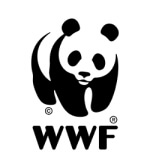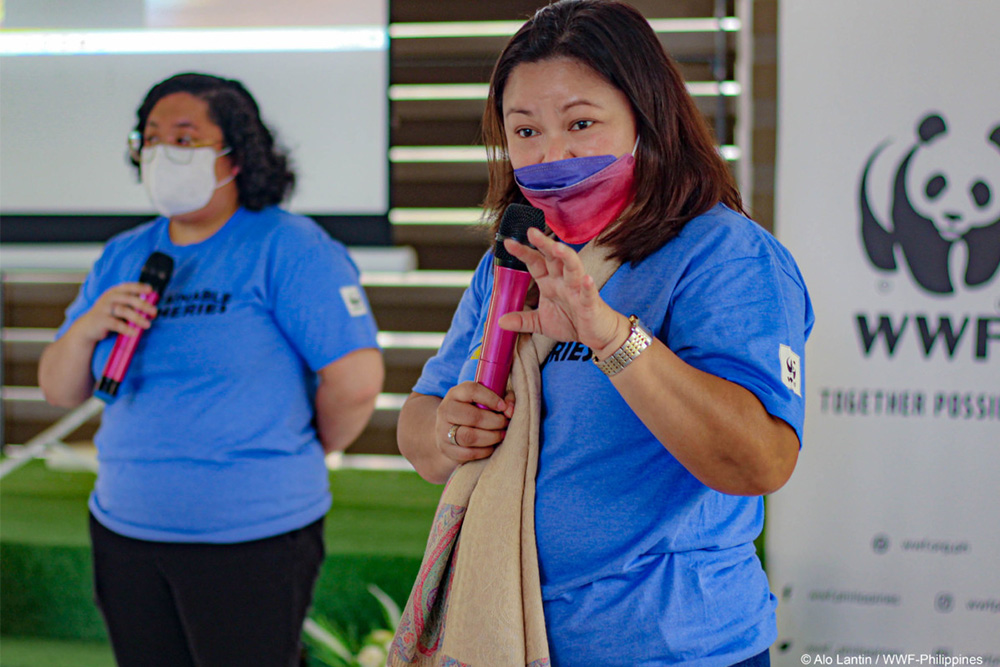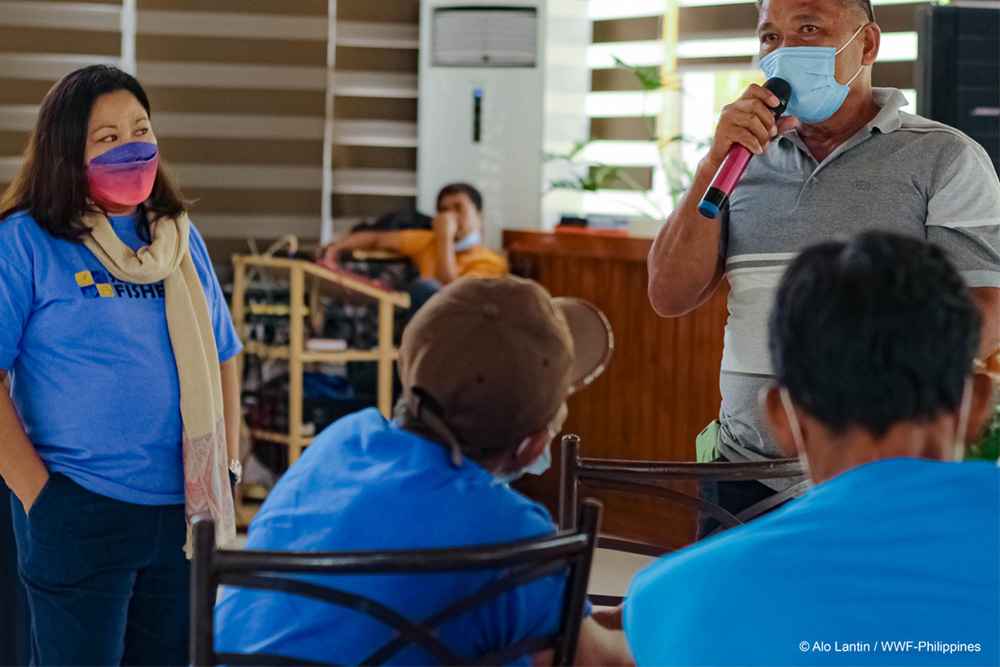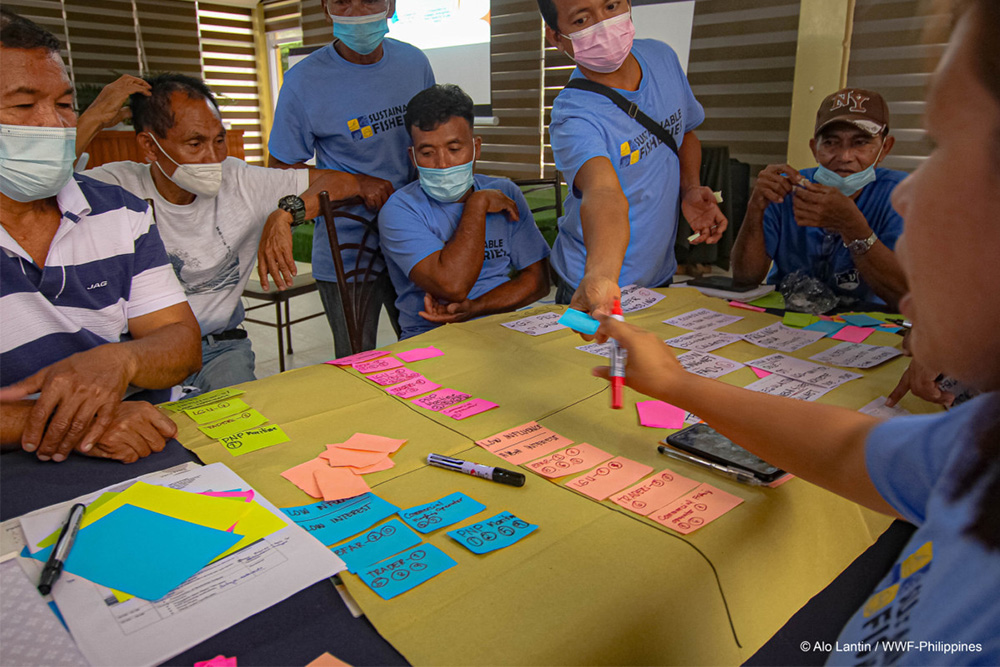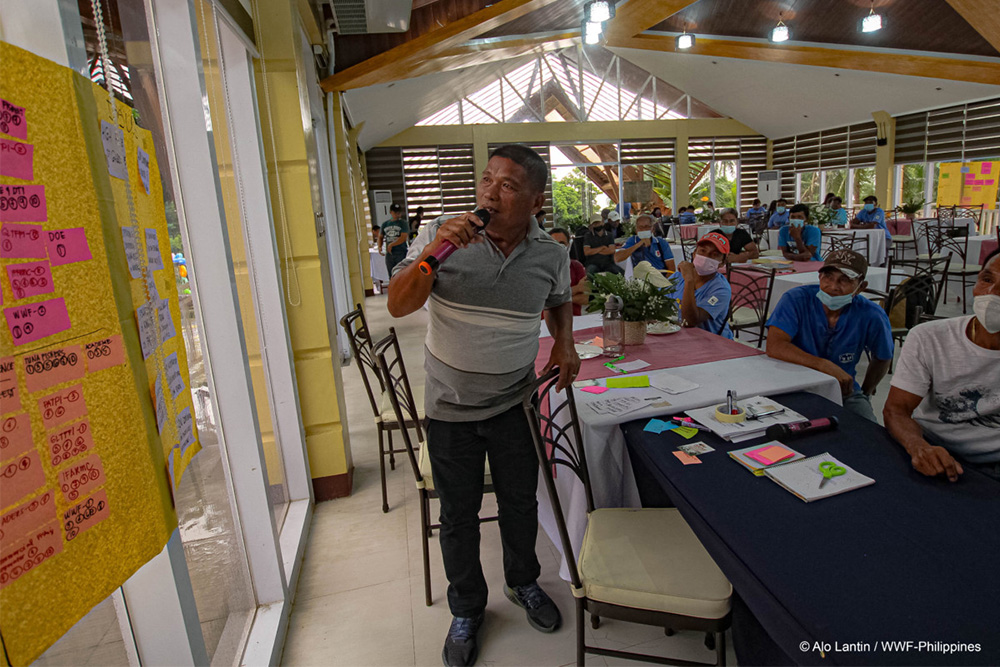Bicol, the Philippines – WWF-Philippines’ Sustainable Tuna team widens its net in its search for conservation partners.
On the 26th of May, the World Wide Fund for Nature Philippines (WWF-Philippines) Sustainable Tuna Partnership 2 (STP 2) team convened its first Multi-Stakeholder Partnership (MSP) meeting.
The goal of the meeting was to establish the first MSP dialogue platform for the project, and to start the groundwork for collaboration among the different stakeholders of the yellowfin tuna supply chain.
An MSP dialogue platform brings together a diverse group of stakeholders, with the express purpose of discussing their shared issues. Through the MSP dialogue platform, all stakeholders are allowed to raise their concerns and contribute to the conversation, in order to inform solutions that are representative of all those involved with the issue.
In the case of the STP 2 project, the issue of concern is the management of the yellowfin tuna fisheries of Lagonoy Gulf, as well as how to make the tuna supply chain more equitable.
“We see these platforms as both a necessary step and a good opportunity to create the best and most effective solutions for the management of our fisheries. There are many stakeholders at play here, so if we can get their input and their buy-in, we just might be able to safeguard our fish stocks,” shared WWF-Philippines Program Manager Joann Binodo.
Present at the meeting were representatives from five key stakeholder groups: commercial fishers, traders, municipal fishers, local government units and the academe. The STP 2 team facilitated the discussion, assisting the different stakeholder groups as they plotted their various fisheries-related issues.
A number of issues were raised during the meeting, such as gaps in crucial fishery management information, post-harvest losses faced by municipal fishers, and the granting of commercial fishing access in municipal waters.
An issue that was also raised was the lack of representation for commercial fishers. As of now, no formal organization exists to represent commercial fisherfolk, making it harder to gain their insights through the MSP dialogue platform.
These issues will serve as a foundation for future meetings, and help paint a picture of the yellowfin tuna fisheries of Lagonoy Gulf. The STP 2 team looks to organize more MSP dialogue platforms, in order to engage as wide a breadth of stakeholders as possible.
A separate MSP dialogue platform will be established in Mindoro Strait to better address local issues there.

